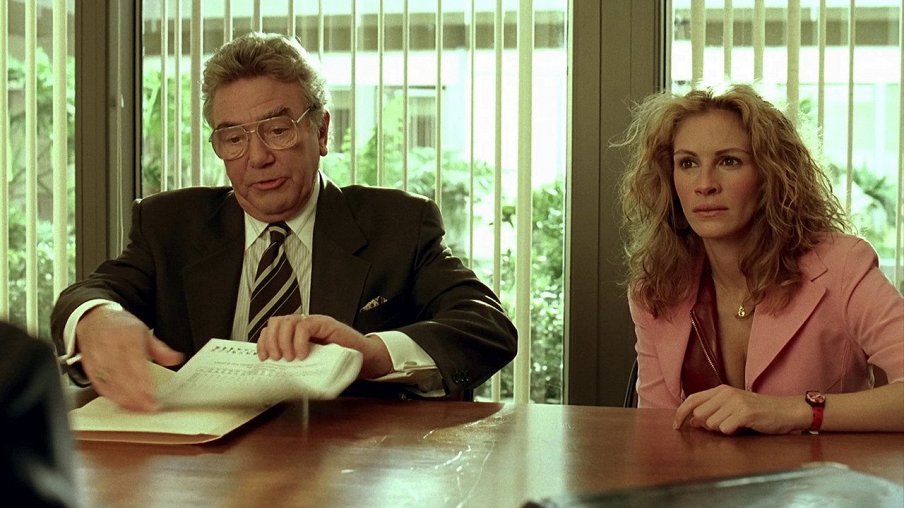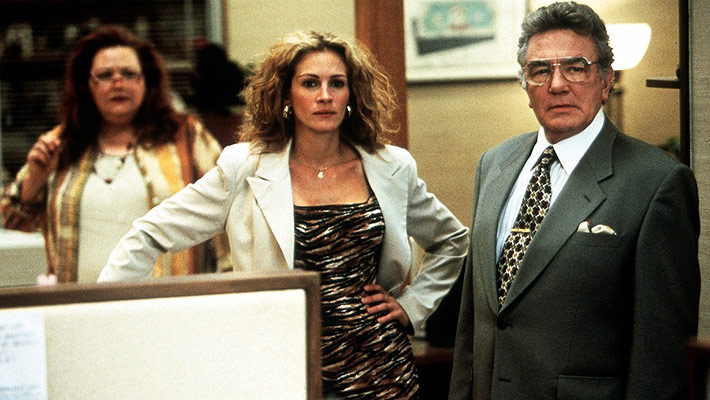Large corporations that create resources for human comfort and well-being rarely think about their actions on the environment. Environmental pollution is a severe problem, and the fight against it has been going on for decades. Corporations must be aware of their responsibility and understand how their activities are connected to society’s economic and social aspects. The movie Erin Brockovich is an example of a woman fighting against a company that did not want to take responsibility for the damage. It demonstrates the problem: companies do not evaluate the impact of their activities on the environment.
The Erin Brockovich was released in 2000, becoming a cult film due to Julia Roberts’ strong performance as a legal consultant. The most striking idea of the film is Erin’s confrontation with PG&EC’s lawyers (Soderbergh). This scene clearly shows how some people are willing to take responsibility for their actions, while others – corporate executives – abdicate corporate social responsibility. This problem continues to be an issue in today’s society, despite the efforts of human rights organizations.
The problem of corporate social responsibility (CSR) lies like business, which is contradictory. The principles of business should be respect for people, society, and the environment. Instead, companies continue to refuse a favorable transformation of nature in favor of the growth of their performance. Companies do not solve society’s social problems – the interaction between the environment and people. Thus, CSR is a leading business and societal problem because there is a lack of leverage to manage companies’ operations.
Erin Brockovich exposes this problem in detail: PG&EC, which used chromium-poisoned soils, has negative consequences for nature and people. Instead of taking responsibility, the organization chose to deny health problems because of the water. The company refuses any information, throwing the case on a subsidiary office in Hinkley and unwilling to accept a class-action lawsuit from Hinkley residents. Due to Erin’s work, binding arbitration was held to win the case and get a large settlement. There is a question about what and who can make companies understand the consequences of their actions.
The question posed in the film refers to the economic aspects of the lack of CSR. First, companies do not put a price on the environmental impact of their work: many difficulties lie incorrectly estimating the consequences. Second, the set of externalities that companies must consider is at the forefront of defining a company’s mission and vision in society. Third, not all organizations budget for the costs to address the effects of hazardous activities. In addition, such actions result in oversaturated demand and a lack of adequate competition.
Moberg’s article has a similar case study: Alabama has had a pollution problem since the middle of the last century. It is due to chemical waste from factories stimulating the carcinogenesis (Moberg). Instead of fighting it, the public continued to tolerate the consequences until the Chemical Manufacturers Association (CMA) began to take aggressive action to press the companies. The CMA encouraged organizations to take responsibility for the harm they caused. This article shows that the problem of CSR is relevant and that today’s companies are still acting too freely.
This article brings the problem up to date and parallels the film chosen. The portrayal of the CSR problem and its solution become part of the general social responsibility. In my opinion, the key to this problem lies in strengthening legislation regarding the freedoms of companies. New ways of regulating companies’ relationships with society are required, which will allow us to monitor and timely eliminate emerging problems.
Thus, the social problem in society is the unwillingness of companies to take responsibility – CSR. As shown in Erin Brockovich, the actions taken by companies result in enormous harm to the environment and the community. Companies face economic problems due to a lack of CSR, resulting in significant negative consequences. A possible solution is to tighten business controls and regulate companies.
Works Cited
Moberg, Mark. “Erin Brockovich Doesn’t Live Here: Environmental Politics and ‘Responsible Care’ in Mobile County, Alabama.” Human Organization, vol. 61, no. 4, 2002, pp. 377-389.
Soderbergh, Steven, director. Erin Brockovich. Universal Pictures, 2000.
Appendix
Pictures from Erin Brokovich:


